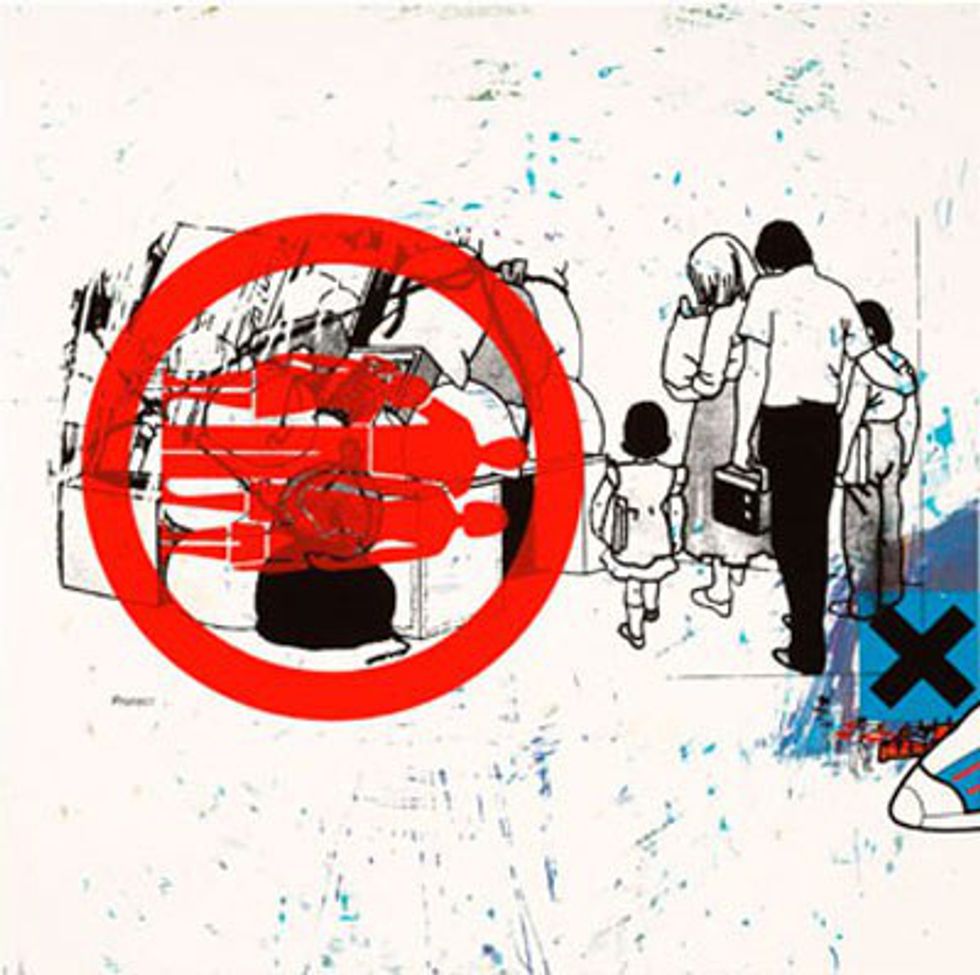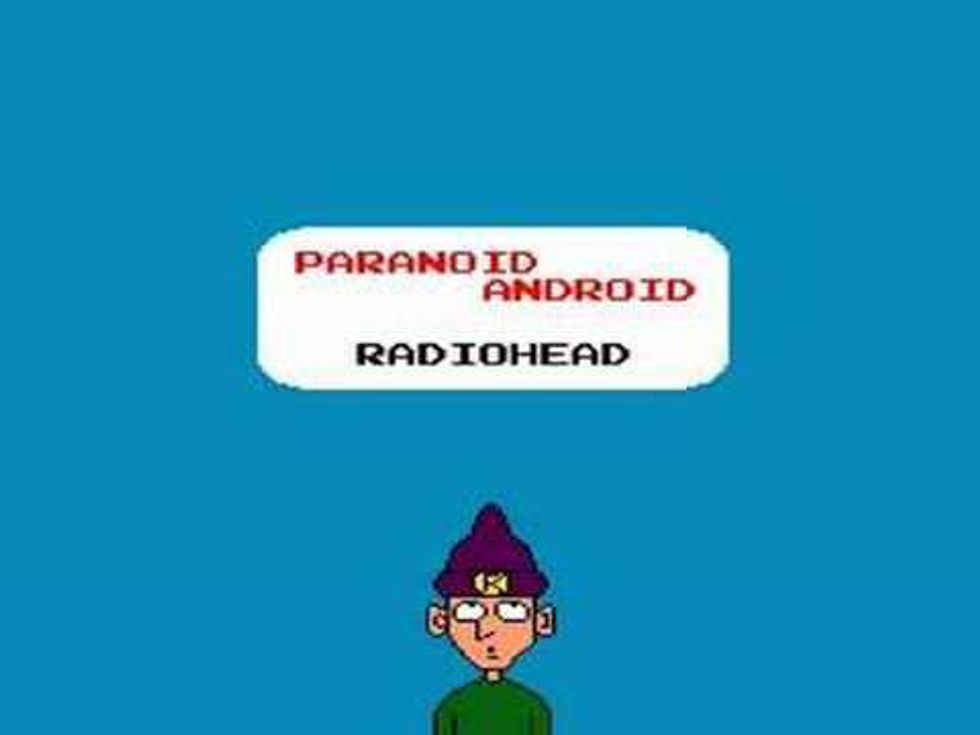The first sound you hear after dropping the needle on OK Computer is the song Airbag's jagged union of electric guitar and cello. Seconds later the rhythm guitar, drums and bass join the mix, one by one, until you're left with a song that is compelling in its messiness. As Airbag progresses it never quite coheres into a proper rock song even though all of the usual ingredients are in place.
You've got a nice set of descriptive verses about a car crash and a chorus devoted to the life saving abilities of modern technology. Thom Yorke's eclectic vocal delivery blurs most of the words together until what you're left with is less a logical progression of scenes and more of a run on sentence about technology and how it coincides with human mortality.
Airbag is the optimum song to open OK Computer because it is the album's thesis statement both sonically and thematically. If you don't like the way the song is seemingly always on the brink of collapsing (which it thrillingly does at the climax) and threatening to have to rebuild itself then you won't like this album. On a similar note, Airbag lays out the album's main philosophical position with the verse "In a deep, deep sleep of the innocent I am born again in a fast German car. I'm amazed that I survived. An airbag saved my life."
Thom is using the lyrical content here to ponder how his life is playing out within a society where technology is evolving faster than the people who use it. This is multilayered with the car and airbag being tied to one another. On one hand, Thom is viewing technology in a positive light because it saved his life. However, it wouldn't have needed to save his life if it didn't almost kill him in the first place.
Maybe Thom was destined to die at that moment? Does this mean the technology has altered the natural course of his life? Is it altering the natural course of our lives as well? These aren't questions OK Computer seeks to answer, but in asking them it solidifies Radiohead as the most forward thinking band of their generation.
The various ways in which technology kills us and saves us from itself was a relevant topic for an album released in 1997 and, when viewed today, it's downright prescient. After all, the title OK Computer is something people say daily when conversing with Siri or the aptly named OK Google app.
Paranoid Android is the song that most relates to this sentiment and is perhaps the best song on the album. In the song's multi part musical world people are presented as having a relationship to technology that blurs the line between man and machine. Thom points out several scenarios that showcase the perceived inhuman nature of the people he was surrounded by when working on the song.
There is the disturbing description "kicking, squealing Gucci little piggy", which is followed by a series of repeated pleas, ending with "why don't you remember my name?" The "paranoid" title starts to make sense now. You see how Thom has portrayed this person as completely lost and incapable of human connection in a world where people and machines are interchangeable.
The album isn't all car crashes and technophobia though. The penultimate track, Lucky, is a soft mediation on how humans use their feelings to will their lives in the direction they want to go. It relates back to Airbag only this time Thom sings "pull me out of the air crash...'cause I'm your superhero." He feels as if surviving one potentially life ending event has now made him invincible. He also questions this when he sings "It's gonna be a glorious day. I feel my luck could change."
If his luck could change for the worse then it could also change for the better. Sometimes you really never know what's going to happen to you. The final line of Lucky is "we are standing on the edge", which highlights the feeling of transition that was approaching people in 1997. They were eagerly/fearfully awaiting the arrival of a new century as Thom was wondering if his luck would change along with the date.
Radiohead weren't content to simply point out how people were rapidly working to intertwine themselves with technology as the 21st century approached. They also wanted to leave the listener with a bit of advice. OK Computer closes with the supremely melancholy The Tourist where Thom sings like he's on the verge of falling asleep.
The dreamy nature of the lyrics and their restrained musical accompaniment is a comforting change of pace. Following the manic fear of a rapidly evolving world and populace, Thom ends OK Computer with the simple phrase "Hey, man. Slow down."
It's a phrase that is just as relevant now as it was in 1997. We may have no idea how technology will continue influencing our lives or what exactly is going to happen to us under a new presidential administration, but we can take solace knowing that Radiohead were just as unsure of the late 90s and now here we are twenty years later.
What is your favorite Radiohead album?























